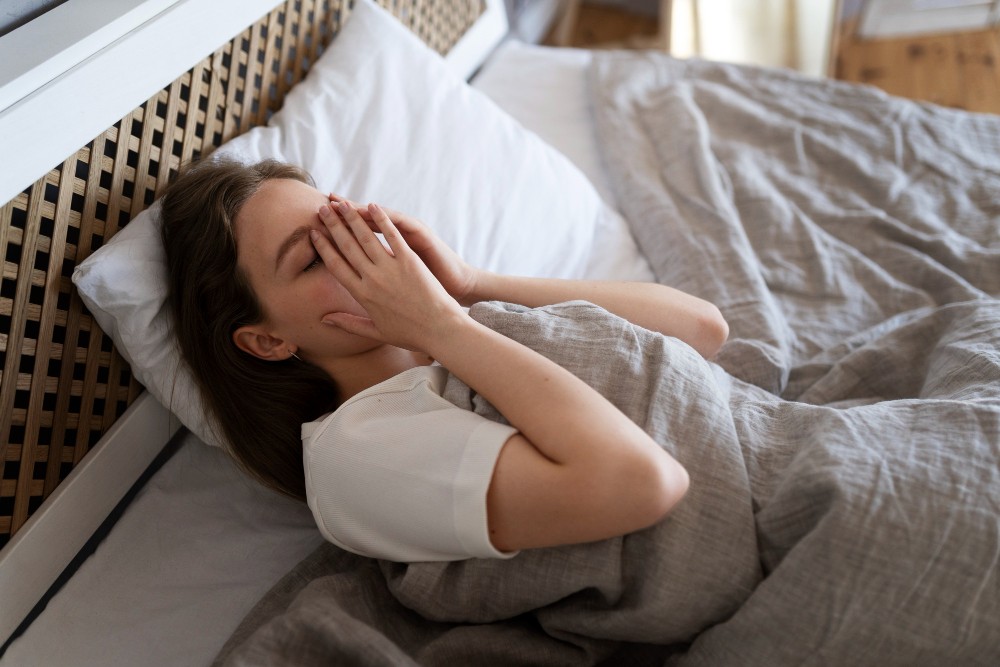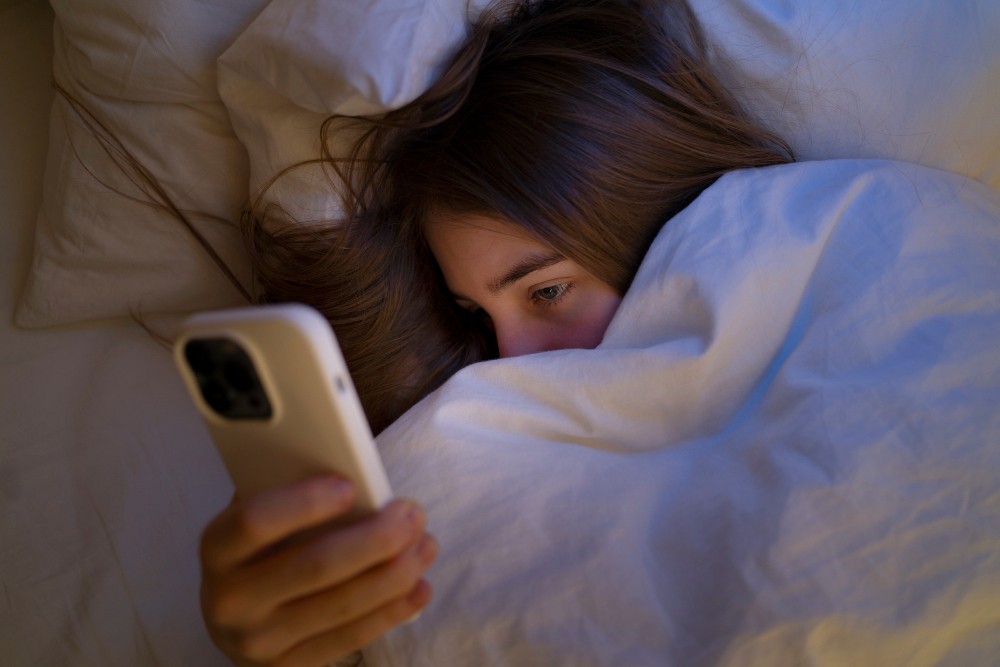Kesulitan tidur dan kurang tidur dapat berdampak negatif bagi kesehatan secara keseluruhan. Kurang tidur bisa memengaruhi fungsi kognitif, termasuk daya ingat, perhatian dan kemampuan berpikir. Saat kurang tidur, Anda juga cenderung merasa lebih stres dan mudah tersinggung. Kurang tidur juga membuat tubuh lebih lemah dan mudah terinfeksi penyakit.
Ada banyak faktor yang bisa memengaruhi kesulitan tidur dan kualitas tidur, salah satunya makanan dan minuman yang dikonsumsi sebelum tidur. Dengan menghindari makanan atau minuman tertentu, Anda bisa menjaga kualitas tidur lebih baik demi kesehatan Anda.
Makanan dan Minuman yang Sebaiknya Dihindari Sebelum Tidur
Ada beberapa jenis makanan dan minuman yang sebaiknya dihindari sebelum tidur, di antaranya:
Minuman beralkohol
Alkohol memiliki efek sedatif yang dapat membuat orang merasa rileks dan mengantuk. Namun, mengonsumsi alkohol dalam jumlah berlebihan justru dapat mengganggu pola dan kualitas tidur.
Selain itu, konsumsi alkohol juga dikaitkan dengan peningkatan risiko gejala apnea tidur, di mana pernapasan terhenti selama tidur. Ini dapat menyebabkan gangguan tidur nyenyak dan perasaan lelah walau sudah cukup tidur.
Makanan pedas
Makanan pedas dapat menyebabkan beberapa masalah yang mengganggu tidur, khususnya bila dikonsumsi menjelang waktu tidur. Makanan pedas dapat merangsang produksi asam lambung yang menyebabkan nyeri perut, refluks asam dan gangguan pencernaan lainnya. Asam lambung yang naik akibat makanan pedas dapat menyebabkan iritasi pada tenggorokan dan menciptakan sensasi terbakar yang memicu kesulitan tidur.
Makanan pedas juga dapat meningkatkan suhu tubuh sementara. Menurut penelitian, peningkatan suhu tubuh sebelum tidur dapat memengaruhi kualitas tidur.
Baca Juga: Mengapa Makan Makanan Pedas Bikin Ketagihan?
Makanan dan minuman yang mengandung kafein
Kafein dikenal sebagai stimulan yang dapat meningkatkan perasaan waspada dan membuat lebih terjaga. Mengonsumsi makanan maupun minuman yang mengandung kafein menjelang tidur dapat memengaruhi kualitas tidur dan membuat Anda sulit tertidur.
Kafein tidak hanya terdapat di dalam kopi, namun juga berbagai makanan dan minuman lainnya seperti teh, cokelat, minuman berenergi, beberapa jenis minuman ringan dan juga cake.
Makanan manis dan tinggi indeks glikemiknya
Makanan dengan indeks glikemik tinggi dan makanan manis dapat menyebabkan lonjakan dan penurunan kadar gula darah yang cepat, yang memicu pelepasan hormon stres seperti adrenalin dan kortisol. Pelepasan hormon stres dapat mengganggu kualitas tidur dan memicu gejala seperti kecemasan, kelaparan dan mudah tersinggung.
Baca Juga: Ngidam Makanan Manis? Ini Pilihan Sehat untuk Meredakan Sugar Craving
Makanan berlemak
Penelitian menunjukkan bahwa asupan makanan berlemak terutama lemak jenuh dapat berdampak negatif pada pola tidur. Mereka yang gemar makan makanan berat dan berlemak di malam hari sering kali menderita insomnia.
Saluran pencernaan melambat saat tidur. Makan makanan berlemak dapat memberikan beban tambahan pada sistem pencernaan dan menyebabkan ketidaknyamanan di perut serta kesulitan tidur. Selain itu, makanan berlemak tinggi juga memperburuk gejala refluks asam yang dapat menyebabkan ketidaknyamanan dan sulit tidur.
Jika Anda mengalami kesulitan tidur selama ini, cobalah untuk menghindari makanan dan minuman yang telah disebutkan sebelumnya terutama saat mendekati waktu tidur. Namun, apabila upaya Anda tidak memperbaiki kualitas tidur, maka tidak ada salahnya untuk berkonsultasi dengan dokter dan menyampaikan keluhan Anda.
Anda juga bisa memanfaatkan layanan konsultasi kesehatan dengan mengunduh aplikasi Ai Care melalui App Store atau Play Store.
Mau tahu informasi seputar nutrisi, makanan dan tips diet lainnya? Cek di sini, ya!
- dr. Monica Salim
Dr. Carl Rosenberg (2019). Get Better Sleep by Avoiding These Types of Foods. Available from: https://www.sleephealthsolutionsohio.com/blog/foods-avoid-before-sleep/
CDC (2022). Tips for Better Sleep. Available from: https://www.cdc.gov/sleep/about_sleep/sleep_hygiene.html
American Psychiatric Association (2020). What are Sleep Disorders?. Available from: https://www.psychiatry.org/patients-families/sleep-disorders/what-are-sleep-disorders
Cleveland Clinic (2022). Sleep Deprivation. Available from: https://my.clevelandclinic.org/health/diseases/23970-sleep-deprivation
Danielle Pacheco (2024). Alcohol and Sleep. Available from: https://www.sleepfoundation.org/nutrition/alcohol-and-sleep
Jillian Kubala, MS, RD (2021). 6 Foods That Keep You Awake at Night. Available from: https://www.healthline.com/nutrition/foods-that-keep-you-awake
Danielle Pacheco (2024). Caffeine and Sleep. Available from: https://www.sleepfoundation.org/nutrition/caffeine-and-sleep











